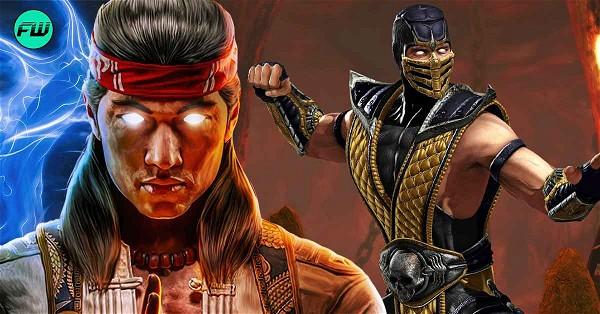Welcome to a comprehensive ranking of the Mortal Kombat games, from the mediocre to the groundbreaking. Join me, Joshua Harris, an experienced content writer and competitive fighting game player, as I delve into the gameplay, narrative, and overall quality of each installment in this iconic series.
12. Mortal Kombat: Armageddon
"Armageddon" Disappoints: Mediocre Mechanics, Lackluster Fatalities
Mortal Kombat Armageddon lands in the last place, failing to live up to expectations. While the game boasts an extensive roster of fighters and a fun kart minigame, its mechanics and fatalities fail to evolve and deliver interest. The fatalities lack personality, as players are left with simplistic displays of body violence. Overall, this installment fell short of our expectations.
11. Mortal Kombat: Deadly Alliance
"Deadly Alliance" Fallacy: Stuck in a 3D Rut
Mortal Kombat: Deadly Alliance pays the price for sticking firmly to the 3D style. While it introduces new fighters and innovative features like Krypts and constant damage, the game fails to escape the pitfall of all-consuming mediocrity. It lacks memorable characters, settling for generic fighters that do not leave a lasting impression. This installment ultimately became one of the least remarkable phases in the franchise's history.
10. Mortal Kombat vs. DC Universe
"MK vs DC Universe": Loss of Gameplay Flavor, Surprisingly Compelling Story
Mortal Kombat vs. DC Universe trades in its signature gameplay flavor for a flat and restrictive fighting experience. However, the game manages to boast and impressive story mode which reshaped fighting games into cinematic pieces. The idea of seeing iconic Mortal Kombat characters battle it out with popular DC Comic heroes sounds like an exciting crossover. While the actual gameplay falls flat, the remarkable storytelling in the campaign saves the game from being a total disaster. Despite its limitations, Mortal Kombat vs. DC Universe leaves an indelible mark on the franchise's history.
9. Mortal Kombat 4
"MK 4" Awkwardly Stumbles: Inferior Visuals and Disappointing Mechanics
Mortal Kombat 4 did not live up to the high bar set by its predecessors. Released in 1997 with inferior visuals and the same outdated mechanics, this installment only managed to introduce crucial characters like Shinnok, Quan Chi, and Fujin. Its cumbersome mechanics include the introduction of the complicated weapon pull mechanic for each fighter, which hindered the overall fluidity of the game.
8. Mortal Kombat: Deception
"Deception" Ascends: Great Lore but Flawed Characters and Cheap Traps
Mortal Kombat: Deception finds its place among the best of the 3D games. This title expanded the series' incredible mythology through a captivating Konquest mode and added significant depth to the lore. It does, however, have its limitations. The game falls short with characters that feel less polished compared to previous iterations and introduces gameplay mechanics that sometimes cheapen the experience. Despite these drawbacks, Deception succeeds in leaving a lasting impression.
7. Mortal Kombat X
"MK X" Shows Evolution but Falters in Characters and Story
Mortal Kombat X marks the beginning of the second trilogy. Although it introduces evolved mechanics and profusely includes guest fighters from a wide variety of pop culture, the game falters in its character roster and lacks a compelling story. The new fighters cater differently to public interest, leading to an imbalanced playing field. Additionally, the story heavily relies on zombie versions of characters, which can feel tiresome in its execution.
6. Mortal Kombat
"MK" Origins: A Simple, Game-Changing Classic
The original Mortal Kombat, released in 1992, seized the hearts of countless gaming enthusiasts. With its basic yet immensely fun commands, this humble game laid the foundation for what would become an iconic franchise. It introduced a limited but groundbreaking set of characters that revolutionized the world of video games forever. This classic installment holds an indisputable appeal to fans seeking a trip down memory lane.
Conclusion
In conclusion, the Mortal Kombat franchise has seen its ups and downs throughout the years. From lackluster entries to groundbreaking titles, each game has left its mark on the history of fighting games. While some installments may have fallen short in specific areas, each one has contributed to the evolution and cult status of the series.
As a lifelong fan and avid player, ranking these games was no easy task. However, after careful consideration of factors such as gameplay mechanics, storytelling, and overall impact on the industry, it becomes clear that certain entries stand out among the rest.
FQA
Which Mortal Kombat game offers the best gameplay mechanics?
While opinions may vary, Mortal Kombat (2011) stands as the ultimate revamp of the franchise, offering improved gameplay mechanics and reigniting the franchise's popularity. This title successfully combines nostalgia with modern elements, making it a fan-favorite in terms of gameplay.
What is considered the iconic Mortal Kombat game among fans?
The iconic Mortal Kombat game among fans is Mortal Kombat II. This 1993 release added classic fighters, expanded the franchise's mythology, and introduced fan-favorite characters like Baraka, Kitana, Mileena, Jax, Kung Lao, and Shao Kahn. It encapsulated the essence of what makes Mortal Kombat memorable and remained a pivotal entry in the series.
Which Mortal Kombat game revolutionized the franchise?
The game that revolutionized the Mortal Kombat franchise was Mortal Kombat (2011). This entry successfully revived the series by combining elements from the first three games and returning to its 2D roots. With improved visuals, mechanics, effects, and the introduction of the Kameo Fighters system, it marked a significant turning point for the series.

